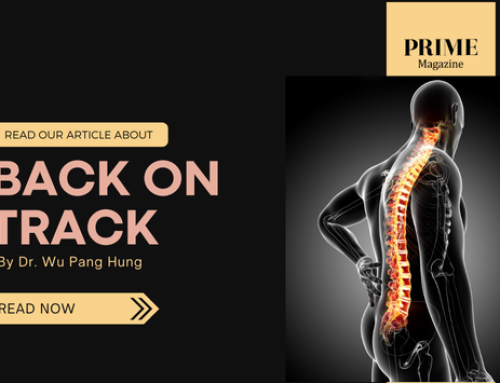Advanced Notice
Colonoscopy Screening: Is it Still Necessary?

The relevance of colorectal cancer (CRC) screening was called into question last year when a large study examined the relevance of colonoscopy screening. The 10-year study found that the procedure failed to prevent colon cancer deaths, and its findings sparked vigorous debate. Many medical professionals, including those in Singapore, quickly debunked the study’s conclusions. Unfortunately, as the replies were not covered in the mainstream media, many members of the public remained confused as to the rationale for continuing colonoscopy screening.

The Nord-European Initiative on Colorectal Cancer Trial
For the uninitiated, I will give a brief summary of the controversial study. The Nord-European Initiative on Colorectal Cancer (NordICC) trial findings were released in the New England Journal of Medicine on 10 October 2022. It is a landmark randomised control trial involving participants from Poland, Sweden, Netherlands and Norway.
In the study, 84,585 men and women between the age of 55-64 who had never undergone screening, were randomised into two arms: one which was invited to undergo colonoscopy screening, and one that did not receive any invitation. The study period was from 2009 to 2014, with a 10-year follow-up. The primary aim of the study was to review CRC risks and CRC-related death outcomes, as well as, secondarily, death from any cause.
In the invited group, 42% (n=11,843 out of 28,220) underwent screening of which CRC was diagnosed in 0.98% (n=259) of the cohort. This is compared to 1.20% (n=622) in those where there was no invitation. The paper made the following conclusions:
- Risk reduction of CRC was observed in 18% of the invited group compared to the usual-care group (no screening).
- Risk of death from CRC was 0.28% in the invited group compared to 0.31% in the usual-care group.
- Risk of death from any cause was similar at 11.03% (invited group) and 11.04% (usual-care group).
- Approximately 455 cases required invitation for colonoscopy screening to prevent one case of CRC.
Major media news networks reported on the study’s conclusions, including CNN and Bloomberg. Locally, The Straits Times also reported on the findings. Their headlines created an uproar. Many pointed out that these headlines were misleading as they highlighted the comparisons on overall death rates, but did not focus on the flaws in the study. There were also other criticisms of the study’s analyses, which include:
- Participation rate was low at 42% and varied among countries (33% in Poland, 60.7% in Norway, etc.). There was also highlighted limitations in the recruitment of study participants. Thus, the true benefits of screening cannot be interpreted correctly as the majority of the participants had, in fact, declined their invitation.
- Adenoma (polyp) detection rate may not be adequate in almost one-third of the endoscopists performing the trial. The ideal adenoma detection rate is suggested to be 25% in the US, but this was not met by a high number of the procedurists in the study. This would imply possible missed polyps, with subsequent development of cancer later on in many of those who underwent colonoscopy screening.
- In the statistical analysis, the authors had used an “intention to treat” methodology. In the screening group, where only 42% had colonoscopy screening, the entire group was analysed against the no-screening group. This is statistically incorrect as there would be 58% of those who declined their invitation and did no colonoscopy screening. However, they were still counted into the overall survival of the screening group. Thus, the analysis and survival of this “screening” group would actually include a majority who did not have screening. The authors later clarified that when analysis was restricted to the 12,000 who had screening colonoscopies, CRC risk reduction was, in fact, 31% and risk of death from CRC was, in fact, reduced by about 50%.
While the results of this study have been rapidly dissected by many experts around the world, there remains many important and sobering results that can be extrapolated for the local population in Singapore.
CRC in Singapore
Our healthcare system is recognised to be one of the best in the world. We have some of the most highly trained doctors, nurses and allied health staff in the world. We also have top notch state-of-the-art facilities, while new, easily accessible hospitals and polyclinics are being developed at a rapid pace throughout the country. We have a robust academic research culture in clinical, translational and basic science to ensure that we are up to date with the latest medical developments. Our policy makers also review medical trends, identify gaps in healthcare, and shore up areas that may potentially experience strain in the future by enhancing manpower recruitment and allocating appropriate budget expenditure.
Yet, despite all these, our statistics with regards to CRC remain dismal. Singapore Cancer Registry’s latest statistical report in 2019 shows that the majority of CRC cases in Singapore are still diagnosed at advanced stage III and IV (male – 57.8%, female – 57.3%). The report further stated that since its collection of stage information in 2003, males with prostate, liver and pancreatic cancers registered the largest shift towards early-stage diagnosis, while female lung and stomach cancers noted an earlier stage of diagnosis. But there was no improvement in CRC diagnosis even though there was some improvement in overall survival.

Increasing CRC Screening Uptake
One of the main barriers to increasing uptake of colonoscopy screening is public perceptions and fears. Thus, while the standard Fecal Occult Blood Test (FOBT) is widely distributed for asymptomatic patients through yearly campaigns, its take-up rate remains low.
There are some things that the public ought to know or which we can do to improve the uptake of CRC screening in Singapore:
- Colonoscopy Improvements
There have been continued progression and development in many aspects of colonoscopy. Firstly, colonoscopy has embraced the use of Artificial Intelligence (AI). Many hospitals have embarked on this utility, resulting in a higher polyp detection rate. Also, scopes now utilise narrow band imaging. These technology advancements have helped procedurists spot difficult to view polyps better.
- Better Training/Resources and Better Information/Awareness
A strong national effort in structuring training in all public hospitals over the last decade has ensured uniform standards of knowledge and competency in both surgeons and gastroenterologists. The public now has access to skilled endoscopists in both public and private sector healthcare.
Some insurers also provide free colonoscopy screening in certain packages. This is laudable as they have recognised the tremendous cost savings that CRC prevention provides.
Public forums and talks led by doctors, societies, insurers and grassroots also continue to provide constant reminders to the public to go for early cancer screening. These public education efforts will continue to be an important facet in the fight against cancer. As our nation strives to adopt a “Healthier SG” mindset with an emphasis on prevention, we look forward to a more coordinated effort to encourage the nation in this important area.
- New Tools
There are new CRC screening tools in the market, such as PCR blood tests like Epi proColon, which can help address the concerns of those who are fearful of colonoscopy. While a colonoscopy remains the gold standard for CRC screening and is safe, the recently launched Epi proColon PCR blood test provides an additional valuable tool for the early detection and monitoring of CRC.
Epi proColon identifies methylated Septin 9, which is a DNA biomarker that has been shed into the blood stream from both colon and rectal cancers – including early stage cancers. The test results are reported as low risk or high risk. The sensitivity and specificity of this test are 81% and 99% respectively in an asymptomatic population. Interpretation requires some understanding, and a physician or surgeon is needed to help explain the results. Low risk does not mean there is no risk of cancer, and a repeat test in a year’s time may be recommended. High risk would imply that a formal diagnostic colonoscopy is needed. However, there is also a false positive rate of 3% documented.
CRC Screening: Relevant and Necessary
In summary, CRC screening remains relevant and highly necessary. There is an urgent need for coordination between different stakeholders to reduce CRC incidence and mortality. In Singapore, there remains a high prevalence of CRC cancers being diagnosed at the advanced stages. Patients who are reluctant to undergo colonoscopy screening should consider other new tools for CRC screening. While more evidence is necessary to prove these tools’ efficacy, they can play a key role in the early detection of CRC. This will ultimately lead to better cure rates.

Dr Chew Min Hoe
Medical Director & Senior Consultant
General & Colorectal Surgeon
The Surgeons
MBBS, MRCS (Edinburgh), MMed (Surgery), FRCS (Edinburgh)
Dr Chew Min Hoe graduated from NUS in 2001. He subsequently obtained his Master of Medicine in Surgery from NUS in 2006 and became a Fellow of the Royal College of Surgeons of Edinburgh in 2010. Dr Chew was awarded the Singhealth Human Manpower Development Plan (HMDP) Award to pursue further training in complex pelvic surgery, and completed his Fellowship at the Royal Prince Alfred Hospital (Sydney, Australia) in 2011-2012. His clinical specialty is General and Colorectal Surgery with special niche interests in colorectal cancer, difficult locally advanced pelvic cancers, genetic hereditary colorectal conditions as well as perianal surgery. Dr Chew is highly involved in education and research, and has published more than 100 peer-reviewed articles.

The Surgeons
Mount Elizabeth Medical Centre
3 Mount Elizabeth #16-09












